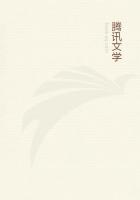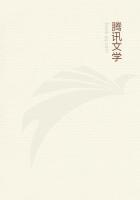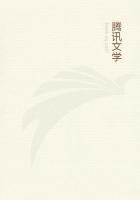After a time the attentive reader will notice in these stories a recurrent pattern of theme and inci- dent: the grotesques, gathering up a little courage, venture out into the streets of Winesburg, often in the dark, thereto establish some initiatory relation- ship with George Willard, the young reporter who hasn't yet lived long enough to become a grotesque. Hesitantly, fearfully, or with a sputtering incoherent rage, they approach him, pleading that he listen to their stories in the hope that perhaps they can find some sort of renewal in his youthful voice. Upon this sensitive and fragile boy they pour out their desires and frustrations. Dr. Parcival hopes that George Willard "will write the book I may never get written," and for Enoch Robinson, the boy repre- sents "the youthful sadness, young man's sadness, the sadness of a growing boy in a village at the year's end [which may open] the lips of the old man."What the grotesques really need is each other, but their estrangement is so extreme they cannot estab- lish direct ties--they can only hope for connection through George Willard. The burden this places on the boy is more than he can bear. He listens to them attentively, he is sympathetic to their complaints, but finally he is too absorbed in his own dreams. The grotesques turn to him because he seems "dif- ferent"--younger, more open, not yet hardened-- but it is precisely this "difference" that keeps him from responding as warmly as they want. It is hardly the boy's fault; it is simply in the nature of things. For George Willard, the grotesques form a moment in his education; for the grotesques, their encounters with George Willard come to seem like a stamp of hopelessness.
The prose Anderson employs in telling these sto- ries may seem at first glance to be ******: short sen- tences, a sparse vocabulary, uncomplicated syntax. In actuality, Anderson developed an artful style in which, following Mark Twain and preceding Ernest Hemingway, he tried to use American speech as the base of a tensed rhythmic prose that has an econ- omy and a shapeliness seldom found in ordinary speech or even oral narration. What Anderson em- ploys here is a stylized version of the American lan- guage, sometimes rising to quite formal rhetorical patterns and sometimes sinking to a self-conscious mannerism. But at its best, Anderson's prose style in Winesburg, Ohio is a supple instrument, yielding that "low fine music" which he admired so much in the stories of Turgenev.
One of the worst fates that can befall a writer is that of self-imitation:
the effort later in life, often desperate, to recapture the tones and themes of youthful beginnings. Something of the sort hap- pened with Anderson's later writings. Most critics and readers grew impatient with the work he did after, say, 1927 or 1928; they felt he was constantly repeating his gestures of emotional "groping"-- what he had called in Winesburg, Ohio the "indefin- able hunger" that prods and torments people. It be- came the critical fashion to see Anderson's "gropings" as a sign of delayed adolescence, a fail- ure to develop as a writer. Once he wrote a chilling reply to those who dismissed him in this way: "I don't think it matters much, all this calling a man a muddler, a groper, etc.... The very man who throws such words as these knows in his heart that he is also facing a wall." This remark seems to me both dignified and strong, yet it must be admitted that there was some justice in the negative re- sponses to his later work. For what characterized it was not so much "groping" as the imitation of "groping," the self-caricature of a writer who feels driven back upon an earlier self that is, alas, no longer available.
But Winesburg, Ohio remains a vital work, fresh and authentic. Most of its stories are composed in a minor key, a tone of subdued pathos-- pathos mark- ing both the nature and limit of Anderson's talent. (He spoke of himself as a "minor writer.") In a few stories, however, he was able to reach beyond pa- thos and to strike a tragic note. The single best story in Winesburg, Ohio is, I think, "The Untold Lie," in which the urgency of choice becomes an outer sign of a tragic element in the human condition. And in Anderson's single greatest story, "The Egg," which appeared a few years after Winesburg, Ohio, he suc- ceeded in bringing together a surface of farce with an undertone of tragedy. "The Egg" is an American masterpiece.
Anderson's influence upon later American writ- ers, especially those who wrote short stories, has been enormous. Ernest Hemingway and William Faulkner both praised him as a writer who brought a new tremor of feeling, a new sense of introspec- tiveness to the American short story. As Faulkner put it, Anderson's "was the fumbling for exactitude, the exact word and phrase within the limited scope of a vocabulary controlled and even repressed by what was in him almost a fetish of simplicity ... to seekalways to penetrate to thought's uttermost end." And in many younger writers who may not even be aware of the Anderson influence, you can see touches of his approach, echoes of his voice.
Writing about the Elizabethan playwright John Ford, the poet Algernon Swinburne once said: "If he touches you once he takes you, and what he takes he keeps hold of; his work becomes part of your thought and parcel of your spiritual furniture forever." So it is, for me and many others, with Sherwood Anderson.
To the memory of my mother, EMMA SMITH ANDERSON,whose keen observations on the life about her first awoke in me the hunger to see beneath the surface of lives, this book is dedicated.















